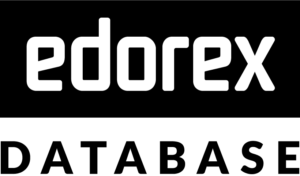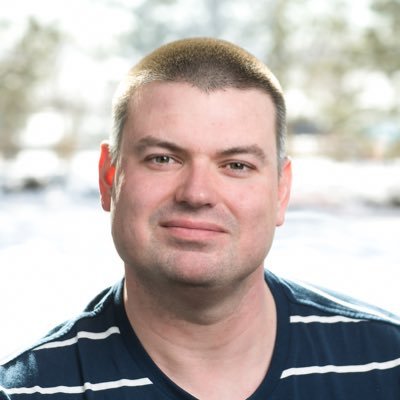Episode 3
June 15th – 17th 2020
We did it twice, why not a 3rd time?
After a successful first two events we are ready for Episode 3 of ACEs@home.
We wanted to offer more topics, covering more than Database, Analytics and APEX. That’s why this time there is a “Dev” day covering various kind of development aspects. We also wanted to be able to host topics and speakers who don’t fit in the original “ACE Program, Groundbreaker Ambassador or Oracle” speakers’ profile. This generated the “Friends of ACEs@home” day.
The format is as usual, we slightly adapted the timing. The Zoom sessions will start at 13:00 CEST (07:00 EDT) to allow everybody to connect. First session will be 10 minutes later. We added a longer break between session 2 and 3, to give you time to get some fresh air, a drink or just answer that email which can’t wait any longer…
Sponsored by Edorex DATABASE
Edorex AG was founded in 1983 as a provider of individual software solutions. Today Edorex is acting as an enabler in the field of digitization. The headquarters of the company is located near Bern, Switzerland.
Since more than 20 years our customers trust in the high expertise of our database consultants during all life cycles of a database. In this time our customer base has grown continuously and now covers all regions of Switzerland.
Besides classical database consulting, our maintenance and support contracts ensure that our customers can enjoy a peaceful sleep. In addition to 24/7 availability of our support hotline, we carry out regular maintenance and diagnostic work so that the databases of our customers run smoothly.
With many years of experience in database licensing we assure our customers that they are compliant and can take the most out of their license cost.
https://database.edorex.ch
Monday, June 15th
Friends
of ACEs@home
13:00-17:20 CEST
(07:00-11:20 EDT)
| 13:10 | Niall Litchfield | Evaluating Database Performance Impact of Platform Changes |
| 14:10 | Jonathan Lewis | Just Don’t Do It. |
| 15:20 | Robin Moffatt | Integrating Oracle and Kafka |
| 16:20 | Luiza Nowak | How to make better tech presentations |
Tuesday, June 16th
Database
13:00-17:20 CEST
(07:00-11:20 EDT)
| 13:10 | Patrick Barel  |
A Gentle Introduction to Polymorphic Table Functions |
| 14:10 | Holger Friedrich  |
Autonomous Database and Data Lake, a match made in… the Cloud |
| 15:20 | Martin Bach  |
Things you may not yet have known about Data Guard |
| 16:20 | Ilmar Kerm  |
Implementing incremental forever strategy for Oracle database backups |
Wednesday, June 17th
Dev
13:00-17:20 CEST
(07:00-11:20 EDT)
| 13:10 | Lucas Jellema   |
How and why GraalVM is quickly becoming relevant for you |
| 14:10 | Sabine Heimsath  Robert Marz  |
Make yourself at home - in SQL Developer |
| 15:20 | Phil Wilkins  |
REST, GraphQL, gRPC what should I use to build my APIs? |
| 16:20 | Michel Schildmeijer  |
Build a secure container landscape on the Oracle Cloud |
Sessions details, recordings and slides
Michel Schildmeijer: Build a secure container landscape on the Oracle Cloud
Oracle and Oracle Linux now supports a new era of container native technologies, alternatives to current docker Kata Containers are other than docker containers ,a lightweight Virtual Machine (VMs) that feel and perform like containers, but provide the workload isolation and security advantages of VMs. Kata containers have their own kernel but still have all the characteristics and benefits of containers.
They provide the workload isolation and security advantages of VMs. but at the same time maintain the speed of deployment and usability of containers.by using kata containers, instead of namespace, small virtual machines are created on the kernel and be strongly isolated. The technology of Kata Containers is based on KVM hypervisor. That’s why the level of isolation is equivalent to typical hypervisors. This session will focus on a live production phase when choosing kata instead of docker, and why they are preferable Although containers provides software-level isolation of resources, the kernel needs to be shared. That’s why the isolation level in terms of security is not so high when compared with hypervisors.This learns to shift from Docker as the de facto standard to Kata containers and learn how to obtain higher level of security.
Speaker: Michel Schildmeijer
Title: “Build a secure container landscape on the Oracle Cloud”
Presented on: Wednesday, June 17th 2020, 16:20 CET
Slides: coming soon
Phil Wilkins: REST, GraphQL, gRPC what should I use to build my APIs?
REST has displaced the use of SOAP+WSDL but GraphQL and gRPC are rapidly gaining mainstream adoption, are these going to displace REST? If so, what technology should I use with my new APIs? In this session, we’ll explore and illustrate the characteristics, strengths and weaknesses of these technologies and how they fit for different use cases.
Speaker: Phil Wilkins
Title: “REST, GraphQL, gRPC what should I use to build my APIs?”
Presented on: Wednesday, June 17th 2020, 15:20 CET
Slides: coming soon
Sabine Heimsath, Robert Marz: Make yourself at home – in SQL Developer
Do you spend a lot of time working with SQL Developer? In that case, you will already know many of the great features it has. You will also have developed a way of doing routine tasks. You might have accepted a few quirks. Maybe it’s time for having another look at your old tool? Robert and Sabine will talk about the little but effective features that can make your life easier and more beautiful: Preferences to tweak, shortcuts to use, changing the appearance: SQL Developer doesn’t support color themes out of the box, but fortunately, the Java Swing framework does. We show you how to change the looks by enabling an almost dark/flat mode for your SQL Developer. Now you’re set, you might want to connect to a database – why else should you bother? Not every database can be reached via SQLNet from your Client directly. To connect to your prod or cloud database, you can set up an ssh tunnel through the firewalls.
There is no need to do that manual upfront – SQL Developer makes it easy to set up and use ssh tunnels. We show you how to do so and provide some background information.
Speaker: Sabine Heimsath, Robert Marz
Title: “Make yourself at home – in SQL Developer”
Presented on: Wednesday, June 17th 2020, 14:10 CET
Slides:
Lucas Jellema: How and why GraalVM is quickly becoming relevant for you
Starting a Java application as fast as any executable with a memory footprint rivaling the most lightweight runtime engines is quickly becoming a reality, through Graal VM and ahead of time compilation. This in turn is a major boost for using Java for microservice and especially serverless scenarios. For a long time GraalVM seemed merely an exotic research project in an Oracle lab. However, things are moving fast now. A production ready GraalVM release is available – so we can start to leverage its goodness. Microservice frameworks like Quarkus fully leverage GraalVM – and Spring is rapidly embracing it as well.
The second major pillar of GraalVM is its polyglot capability: it can run code in several languages – JVM and non-JVM such as JavaScript/ES, Python, Ruby, R or even your own DSL. More importantly still: GraalVM enables code running in one language to interoperate with code in another language. Forget Rhino and Nashorn: Java to JavaScript interaction is so much better on GraalVM. Want to leverage Python libraries from Java? Or a C++ routine? GraalVM supports many and increasingly more forms of interoperability.
This session introduces GraalVM, its main capabilities and especially its practical applicability – now and in the near future. There are demonstrations of ahead of time compilation and use of Java based serverless functions with tiny run times and ultrafast startup. Quarkus and Apache Camel on Graal VM are shown and examples are presented of runtime interoperability of various non-JVM languages with Java.
Speaker: Lucas Jellema
Title: “How and why GraalVM is quickly becoming relevant for you”
Presented on: Wednesday, June 17th 2020, 13:10 CET
Slides:
Ilmar Kern: Implementing incremental forever strategy for Oracle database backups
When databases get ever larger and larger, backing them up using traditional RMAN backupsets will quickly get unfeasible. Completing a backup requires too much time and resources, but more importantly the same also applies to restores. RMAN has always provided a solution as incrementally updated image copies, but they are much less manageable than backupsets. This presentation goes into detail on how to successfully implement incremental-forever database backup strategy together with a capable storage system like Netapp or ZFS Storage Appliance, and on how to build more advanced features on top that platform, like automation and cloning.
Speaker: Ilmar Kern
Title: “Implementing incremental forever strategy for Oracle database backups”
Presented on: Tuesday, June 16th 2020, 16:20 CET
Slides:
Martin Bach: Things you may not yet have known about Data Guard
Oracle Data Guard is the premier replication technology for the Oracle database, Enterprise Edition. It has been around for what feels like eternities and yet there are quite few users of Data Guard who aren’t aware of the bells and whistles the product offers. And there are quite a few!
This talk addresses some of the less well-known Data Guard features that proved to be extremely useful in the presenter’s opinion. Features to be covered are the switchover-readiness-assessment, the use of physical standby databases for RMAN and storage level clones, delayed redo application to prevent data corruption, recovery from services and many more. In addition to these direct benefits of using the technology Data Guard offers different well-understood protection modes. What is less well known though is what impact a choice of protection level can have on performance on the primary database, including features that can alleviate some (at a price).
After this session attendees should have a better understanding of the various options in the Data Guard offering and how to use the product effectively in the life of the production DBA.
Speaker: Martin Bach
Title: “Things you may not yet have known about Data Guard”
Presented on: Tuesday, June 16th 2020, 15:20 CET
Slides: coming soon
Audio issues in the recording are fixed at 01:55. Only Martin’s “about me” part is missing, the topic of the session is in good audio quality.
Holger Friedrich: Autonomous Database and Data Lake, a match made in… the Cloud
Nowadays we can have flexibility and quick-ingest capabilities of Data Lakes combined with data structuring, data integrity, security, and all the advantages of relational databases. We achieve this by integrating a flexible, scalable (object) storage layer with the powerful Oracle database engine, also on-premises, but especially in the Autonomous Data Warehouse service. The key to all of this is the clever use of (partitioned) Oracle External Tables. In this presentation we will discuss object store based Data Lakes and their integration with Oracle Autonomous Data Warehouse from an architecture point of view, as well as from the point of technical implementation.
Speaker: Holger Friedrich
Title: “Autonomous Database and Data Lake, a match made in… the Cloud”
Presented on: Tuesday, June 16th 2020, 14:10 CET
Slides:
Patrick Barel: A Gentle Introduction to Polymorphic Table Functions
Oracle database 18c introduces Polymorphic Table Functions. This session will tell you about Polymorphism. How can you apply this in pre-18c databases? I will show you what problem and the solution when your data or structure changes. I will also show you an example of a Polymorphic Table Function and how this can help protect you from changing table structures and how you can apply the same code to different table structures without changing or even recompiling the code. After this session you will understand when to use which technique.
Speaker: Patrick Barel
Title: “A Gentle Introduction to Polymorphic Table Functions”
Presented on: Tuesday, June 16th 2020, 13:10 CET
Slides:
Luiza Nowak: How to make better tech presentations
The best way to improve efficiency is to avoid work. In this presentation we look at several production examples of ways in which excess work can be eliminated. The options vary from basic configuration to simple code changes, from rephrasing the requirement to restating the logic and being aware that you may have missed features that are perfect matches for your requirement.
We consider array fetching, precision updates, side effects of analytic functions, best use of PL/SQL, pros and cons of temporary tables and intermediate results, and the dangers of using scalar subqueries that might make queries easier to understand but could make them much slower to run. Along the way we tick off a couple of technical details about indexes, analytic functions, and the 12c match_recognize functionality.
Speaker: Luiza Nowak
Title: “How to make better tech presentations”
Presented on: Monday, June 15th 2020, 16:20 CET
Slides:
Robin Moffatt: Integrating Oracle and Kafka
For all its quirks and licence fees, we all love Oracle for what it does. But sometimes we want to get the data out to use elsewhere. Maybe we want to build analytics on it; perhaps we want to drive applications with it; sometimes we might even want to move it to another non-Oracle database—can you imagine that!
With Apache Kafka as our scalable, distributed event streaming platform, we can ingest data from Oracle as a stream of events. We can use Kafka to transform and enrich the events if we want to, even joining them to data from other sources. We can stream the resulting events to target systems, as well as use them to create event-driven microservices.
This talk will show some basics of Kafka and then dive into ingesting data from Oracle into Kafka, applying stream processing with ksqlDB, and then pushing that data to systems including PostgreSQL as well as back into Oracle itself.
Speaker: Robin Moffatt
Title: “Integrating Oracle and Kafka”
Presented on: Monday, June 15th 2020, 15:20 CET
Slides:
Jonathan Lewis: Just Don’t Do It.
The best way to improve efficiency is to avoid work. In this presentation we look at several production examples of ways in which excess work can be eliminated. The options vary from basic configuration to simple code changes, from rephrasing the requirement to restating the logic and being aware that you may have missed features that are perfect matches for your requirement.
We consider array fetching, precision updates, side effects of analytic functions, best use of PL/SQL, pros and cons of temporary tables and intermediate results, and the dangers of using scalar subqueries that might make queries easier to understand but could make them much slower to run. Along the way we tick off a couple of technical details about indexes, analytic functions, and the 12c match_recognize functionality.
Speaker: Jonathan Lewis
Title: “Just Don’t Do It.”
Presented on: Monday, June 15th 2020, 14:10 CET
Slides:
Niall Litchfield: Evaluating Database Performance Impact of Platform Changes
In 2018 a new class of previously unrecognized vulnerabilities in modern CPUs was recognised by Google and others. Patches for the issues for most operating systems and cloud environments were rapidly produced. These patches came with vaguely stated performance overheads of between 5 and 30%. This presentation outlines the nature of the threat and the approach we took to assessing the likely impact on our database servers, as well as representative application performance benchmark details. Whilst the case study is focussed on a specific technical change, attendees will learn techniques suitable for assessing the performance impact of a large number of platform changes.
Speaker: Niall Litchfield
Title: “Evaluating Database Performance Impact of Platform Changes”
Presented on: Monday, June 15th 2020, 13:10 CET
Slides: coming soon















